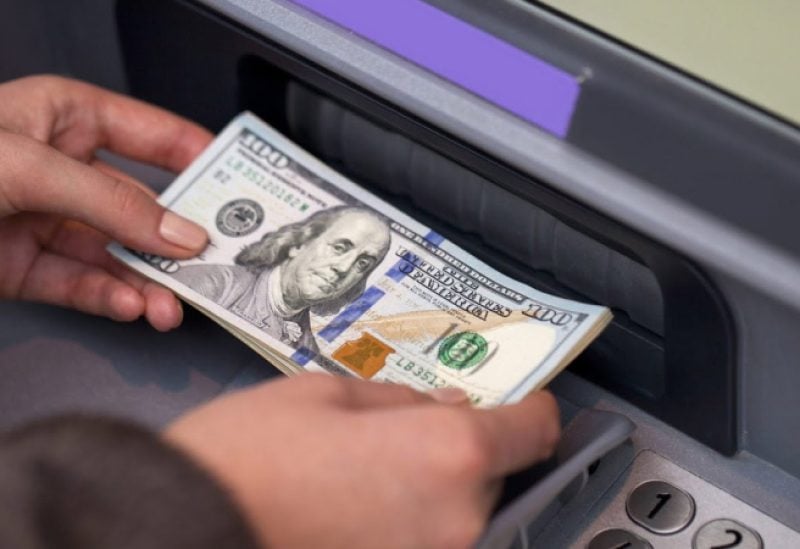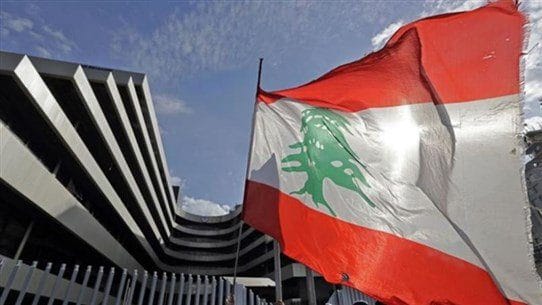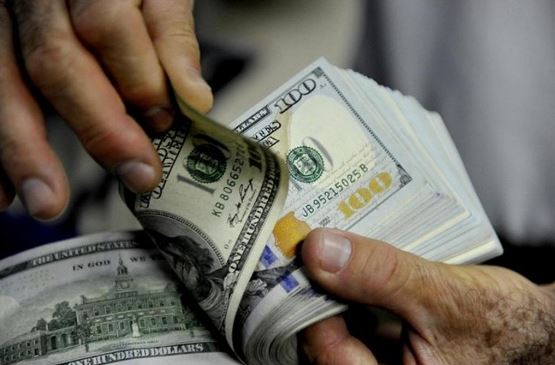جاء في صحيفة “الشرق الأوسط”:
يدور حراك جدِّ في أوساط القطاع المالي اللبناني، لا سيما بين البنك المركزي والجهاز المصرفي، بهدف إنعاش صياغة مشروع قانون يتيح تحصين استئناف التمويل بالدولار النقدي (الفريش) لصالح الأفراد والشركات، عبر اشتراط قانوني لآلية إيفاء تلزم المستفيد السداد بعملة القرض.
وتعكف حاكمية مصرف لبنان على طمأنة جمعيات المودعين وتبديد الهواجس المعترضة على المشروع، عبر التأكيد أن العمليات الائتمانية تشكل أساس المهنة المصرفية ومورداً حيوياً للتشغيل والربحية، ما يصب تلقائياً في تحسين السداد المتدرج للودائع المحتجزة، وإمكانية زيادة الحصص الشهرية التي يستفيد منها حالياً نحو 300 ألف مودع، بمبالغ تراوح بين 150 و400 دولار نقدي.
وبالفعل، يشدّد حاكم مصرف لبنان بالإنابة وسيم منصوري على ضرورة إعادة القطاع المصرفي إلى عملية التسليف، باعتبار أن هذا الإجراء من شأنه تعزيز الحركة الاقتصادية، وزيادة السيولة في المصارف، ما يساهم تلقائياً في المساعي الرامية لردّ أموال المودعين.
ويفترض الإنضاج العملي لهذا التحرك ووضعه على المسار التشريعي، حسب المصادر المعنية، جلاء وجهة حرب الحدود الجنوبية وانحسار المخاوف من توسعها، بحيث يمكن للبنك المركزي وجمعية المصارف، وبالتعاون مع وزارة المال، إعداد النص المستهدف، متضمناً الأسباب الموجبة والإيجابيات المتوخاة لصالح المودعين، وتنشيط أعمال القطاع الخاص بالتجزئة وبتلبية الحاجات التمويلية للشركات.
كما يرتقب، وفقاً لمصادر معنية ومتابعة، أن يُطرح المشروع بنص مستقل، يتضمن إلزام المصرف والمستفيد معاً بالبنود التعاقدية المدرجة في العقود المنشئة لديون محرّرة بالعملة الأجنبية، بحيث تشترط تسديد هذه الديون بعملتها أو بما يوازيها بالليرة اللبنانية، وفقاً للسعر المعتمد من البنك المركزي، البالغ حالياً 89.5 ألف ليرة لكل دولار.
وسبق لجمعية المصارف أن حاولت غير مرة خلال السنتين الماضيتين الحصول على تشريع واضح يضمن إنشاء خط محدث بالدولار النقدي ضمن محافظ ائتمانية، لكنها قوبلت بمعارضة ضمنية من المراجع المعنية في مجلس النواب والحكومة، تقوم على وجوب تجنّب إثارة المودعين، وأولوية إعادة تكوين الرساميل، وتحديد خريطة طريق إعادة هيكلة القطاع ومؤسساته.
ويؤمل، حسب المصادر المعنية، بلورة الاقتراح التشريعي المنشود بالتزامن مع إنجاز مشروع قانون الموازنة للعام المقبل، الذي تعمل وزارة المال على إنجازه وإقراره في الحكومة مبكراً، تمهيداً لرفعه إلى مجلس النواب ضمن المهلة الدستورية خلال العقد التشريعي، في الخريف المقبل، ما يشكل دفعاً مزدوجاً لتنشيط أعمال القطاع الخاص وتلبية احتياجاته التمويلية، فضلاً عن إعادة فتح قناة تدفقات دولارية لصالح البنوك ومودعيها، بعد إقفال قسري شارف على ختام عامه الخامس.
بدوره، يؤكد أمين عام جمعية المصارف فادي خلف، أن استعادة القطاع المصرفي لدوره بالإقراض يساهم بعودة الثقة والازدهار الاقتصادي، وبالتالي، فإن الأهمية التي توليها خطط المعالجة المطروحة حالياً لعودة المصارف إلى التسليف، إنما تهدف إلى تعزيز قدرة المصارف على ردّ أموال المودعين بوتيرة أسرع، وتحفيز النمو الاقتصادي، بالإضافة إلى إعادة الثقة بالقطاع المصرفي.
وتشكل الودائع الجديدة بالدولار النقدي، التي تراوح مبالغها الصافية شهرياً بين 2.5 و3 مليارات دولار، تبعاً لحركة الإيداع والسحوبات، المحفظة الأساسية لضخ توظيفات ائتمانية محمية بآليات سداد سليمة، كما يمكن للبنوك توظيف جزء من أموالها الخاصة، وما يمكنها تحصيله من العوائد الواردة من حسابات منتجة ومستمرة ضمن صافي محافظها الائتمانية السابقة للانهيار المالي والنقدي، والبالغة، وفق البيانات المحدثة، نحو 6.7 مليار دولار.
ويشير خلف في هذا السياق، إلى أن الودائع المصنفة «فريش دولار» محمية بنسبة 100 في المائة عبر التعاميم الصادرة عن مصرف لبنان.
لذا، من المفيد توجيهها نحو الإنتاجية بما يصب في مصلحة الجميع، مع التأكيد أن المصارف لن تُقدم على أي خطوة باتجاه التسليف ما لم تؤمن لها الأرضية القانونية الكافية والكفيلة بحماية هذا المسار بكل تفاصيله.
بذلك، تتطلب هذه الخطوة، وفق خلف، من المجلس النيابي أن يلاقي حاكم المركزي في منتصف الطريق، وذلك بإقرار قانون يضمن سداد القروض بعملة الاقتراض، خصوصاً أن الأموال المُقترح استخدامها للتسليف هي من ودائع الـ«فريش دولار»، وهذا الإجراء يهدف إلى منع تحقيق المقترضين من جديد أرباحاً غير عادلة على حساب المودعين.
المصدر: علي زين الدين – الشرق الأوسط
Will Fresh Dollar Funding Resume?
According to Asharq Al-Awsat newspaper:
There is significant movement within Lebanon's financial sector, particularly between the central bank and the banking system, aimed at revitalizing a draft law that would safeguard the resumption of fresh dollar financing for individuals and companies. This would be done by legally requiring repayment mechanisms that mandate borrowers to repay loans in the same currency.
The Central Bank of Lebanon is working to reassure depositors' associations and alleviate concerns surrounding this proposal. The bank emphasizes that credit operations are fundamental to the banking profession and a vital resource for profitability and economic activity, which would naturally contribute to the gradual repayment of withheld deposits. This could potentially lead to an increase in the monthly withdrawal limits currently available to around 300,000 depositors, ranging from $150 to $400 in cash.
Acting Governor of the Central Bank, Wassim Mansouri, underscores the necessity of returning the banking sector to lending activities, as this would boost economic activity and increase liquidity in banks. This, in turn, would support ongoing efforts to return depositors' funds.
The practical implementation of this initiative, and its legislative path, will depend on the resolution of the ongoing conflict on Lebanon’s southern border and the easing of related fears. Should conditions permit, the Central Bank and the Association of Banks, in collaboration with the Ministry of Finance, could prepare a draft law that outlines the rationale and expected benefits for depositors and the private sector, including meeting companies' financing needs.
Sources familiar with the matter anticipate that the proposed law will be presented as an independent text. It will require banks and borrowers to adhere to the contractual terms for loans denominated in foreign currency, stipulating repayment in the same currency or its equivalent in Lebanese pounds at the exchange rate set by the central bank, currently 89,500 LBP per dollar.
The Association of Banks has previously attempted, over the past two years, to secure clear legislation that would allow for the creation of a fresh dollar credit line within lending portfolios. However, these efforts have faced resistance from key parliamentary and government figures, who argue for the need to avoid provoking depositors, prioritize capital recovery, and establish a roadmap for restructuring the banking sector.
According to informed sources, the legislative proposal is expected to be developed in parallel with the 2024 budget bill, which the Ministry of Finance is working to finalize and submit to the government for approval before it is presented to Parliament in the upcoming legislative session. This dual effort is aimed at stimulating private sector activity, meeting financing needs, and reopening the flow of dollar funds to banks and their depositors, nearly five years after this flow was forcibly halted.
Fadi Khalaf, Secretary-General of the Association of Banks, asserts that restoring the banking sector’s lending role is essential for rebuilding trust and economic prosperity. The current recovery plans emphasize the importance of resuming bank lending, which will enhance the banks' ability to repay depositors at a faster pace, stimulate economic growth, and restore confidence in the banking sector.
The fresh dollar deposits, which fluctuate between $2.5 billion and $3 billion per month depending on deposits and withdrawals, constitute the primary portfolio for extending credit with secure repayment mechanisms. Banks may also allocate part of their own funds and reinvest returns from productive and ongoing accounts within their pre-crisis credit portfolios, which currently stand at approximately $6.7 billion.
Khalaf emphasizes that fresh dollar deposits are 100% protected under the directives issued by the Central Bank of Lebanon. Therefore, directing these funds towards productive activities benefits all parties involved. However, banks will not proceed with any lending steps unless they have sufficient legal protection for this process in all its details.
Accordingly, Khalaf believes that Parliament must meet the Central Bank halfway by passing a law that ensures loans are repaid in the currency in which they were borrowed. The proposed funds for lending come from fresh dollar deposits, and this measure is intended to prevent borrowers from unjustly profiting at the expense of depositors.
translated by economyscopes team
 سكوبات عالمية إقتصادية – EconomyScopes إجعل موقعنا خيارك ومصدرك الأنسب للأخبار الإقتصادية المحلية والعربية والعالمية على أنواعها بالإضافة الى نشر مجموعة لا بأس بها من فرص العمل في لبنان والشرق الأوسط والعالم
سكوبات عالمية إقتصادية – EconomyScopes إجعل موقعنا خيارك ومصدرك الأنسب للأخبار الإقتصادية المحلية والعربية والعالمية على أنواعها بالإضافة الى نشر مجموعة لا بأس بها من فرص العمل في لبنان والشرق الأوسط والعالم




